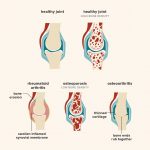
Contents
methamphetamine
Methamphetamine is a stimulant drug used to treat attention deficit hyperactivity disorder (ADHD) and obesity in adults and children older than six years of age. It is a sympathomimetic amine drug that mimics the action of natural chemicals in the body that stimulate the sympathetic nervous system.
Methamphetamine increases the concentration of brain chemicals dopamine, norepinephrine, and serotonin, which stimulate the central nervous system. It promotes the release of these neurotransmitters and blocks their reabsorption (reuptake) after neurotransmission. Methamphetamine also inhibits monoamine oxidase, an enzyme that breaks down these neurotransmitters.
Dopamine, norepinephrine, and serotonin regulate digestion, sleep-wake cycle, movement, attention, memory, motivation, and pleasure. Increasing the levels of these neurotransmitters improves concentration and reduces hyperactive and impulsive behaviors associated with ADHD. Short-term clinical trials in obese patients show that methamphetamine suppresses appetite, but it is unlikely to provide long-term benefits.
Stimulants, including methamphetamine, also increase heart rate, blood pressure, and blood glucose, and dilate the respiratory tract. They have a high potential for abuse and dependence and are used illegally as street drugs.
The FDA-approved uses of methamphetamine include:
- ADHD in patients older than six years of age as part of a total treatment program that includes psychological, social, and educational remedial measures.
- Short-term treatment of obesity as an adjunct to calorie restriction for patients older than 12 years of age in whom obesity is refractory to other drugs, diets, and group programs.
Methamphetamine is used off-label to treat narcolepsy, a chronic sleep disorder that causes daytime drowsiness.
Warnings
- Do not use methamphetamine in patients with the following conditions:
- Known hypersensitivity to sympathomimetic amines
- Symptomatic cardiovascular disease, moderate to severe hypertension, or advanced plaque formation in the arteries (arteriosclerosis)
- Hyperthyroidism
- Glaucoma, an eye condition with high intraocular pressure that causes progressive damage to the optic nerve
- Tourette’s syndrome, a condition that causes tics
- Agitated state
- History of drug abuse
What are the side effects of methamphetamine?
Common side effects of methamphetamine include:
- Palpitations
- Rapid heart rate (tachycardia)
- High blood pressure (hypertension)
- Peripheral vascular disease, including ulceration of fingers and toes, tissue breakdown, and Raynaud’s disease
Rare and serious side effects of methamphetamine include:
- Psychotic disorder
- Seizure
- Amphetamine toxicity and sympathomimetic syndrome
- Muscle breakdown (rhabdomyolysis)
- Cerebrovascular accident
- Heart attack (myocardial infarction)
- Cardiorespiratory arrest
- Sudden death
Call your doctor immediately if you experience the following symptoms or serious side effects while using this drug:
- Serious heart symptoms including fast or pounding heartbeats, fluttering in your chest, shortness of breath, and sudden dizziness;
- Severe headache, confusion, slurred speech, severe weakness, vomiting, loss of coordination, feeling unsteady;
- Severe nervous system reaction with very stiff muscles, high fever, sweating, confusion, fast or uneven heartbeats, tremors, and feeling like you might pass out; or
- Serious eye symptoms including blurred vision, tunnel vision, eye pain or swelling, or seeing halos around lights.
This is not a complete list of all side effects or adverse reactions that may occur from the use of this drug. Call your doctor for medical advice about serious side effects or adverse reactions. You may also report side effects or health problems to the FDA at 1-800-FDA-1088.
What are the dosages of methamphetamine?
Tablet: Schedule II
Adult:
- Initial: 5 mg orally every day or every 12 hours; may increase daily dose at weekly intervals of 5 mg/day until optimal response
- Maintenance: Usual effective dose is 20-25 mg/day; daily dose may be divided every 12 hours
- Drug administration should be interrupted occasionally to determine if there is a recurrence of behavioral symptoms sufficient to require continued therapy
Obesity, Short Term Treatment
- 5 mg PO every 8 hours, 30 minutes before each meal
Pediatric:
- Children below 6 years: Safety and efficacy not established
- Children 6 years and above: 5 mg orally every day or every 12 hours, may increase daily dose at weekly intervals of 5 mg/day until optimal response (usually 20-25 mg/day)
- Daily dose may be divided every 12 hours
- Drug administration should be interrupted occasionally to determine if there is a recurrence of behavioral symptoms sufficient to require continued therapy
Obesity
- Children below 12 years: Safety and efficacy not established
- Children 12 years and above: 5 mg PO every 8 hours 30 minutes before each meal
Addiction/overdose
- Methamphetamine has a high potential for abuse and misuse resulting in tolerance, dependence, and withdrawal symptoms such as fatigue and mental depression upon discontinuation. Misuse and abuse can result in fatal cardiorespiratory arrest and death.
- Acute methamphetamine overdose symptoms include restlessness, tremor, overactive reflexes, rapid breathing, hallucination, confusion, panic, fatigue, high body temperature, cardiovascular symptoms such as irregular heart rhythm, changes in blood pressure and circulatory collapse, and gastrointestinal symptoms such as nausea, vomiting, diarrhea, and abdominal cramps. Severe overdose can cause convulsions, coma, and death.
- Treatment for methamphetamine overdose is symptomatic and supportive care. Undigested drug from the gastrointestinal tract may be eliminated with gastric lavage and administration of activated charcoal. The central nervous system (CNS) stimulant effects may be neutralized by administering chlorpromazine, a sedative drug.
What drugs interact with methamphetamine?
Inform your doctor of all medications you are currently taking, who can advise you on any possible drug interactions. Never begin taking, suddenly discontinue, or change the dosage of any medication without your doctor’s recommendation.
- Severe interactions of methamphetamine include:
- iobenguane I 123
- isocarboxazid
- linezolid
- phenelzine
- procarbazine
- rasagiline
- safinamide
- selegiline
- selegiline transdermal
- tranylcypromine
- amantadine
- American ginseng
- celandine
- desmopressin
- dexlansoprazole
- esomeprazole
- ethosuximide
- eucalyptus
- guarana
- lansoprazole
- omeprazole
- pantoprazole
- rabeprazole
- sage
- yerba mate
The drug interactions listed above are not all of the possible interactions or adverse effects. For more information on drug interactions, visit the RxList Drug Interaction Checker.
Always tell your doctor, pharmacist, or health care provider of all prescription and over-the-counter medications you use, as well as the dosage for each, and keep a list of the information. Check with your doctor or health care provider if you have any questions about the medication.
Pregnancy and breastfeeding
- There are no adequate and well-controlled studies of methamphetamine use in pregnant women. Animal studies indicate it can cause fetal harm. It may also cause premature delivery, low birth weight, and withdrawal symptoms in the newborn. Use methamphetamine during pregnancy only if potential benefits to the pregnant woman outweigh potential risks to the fetus.
- Methamphetamine is excreted in breast milk. Mothers should not breastfeed while on methamphetamine therapy.
What else should I know about methamphetamine?
- Methamphetamine is a Schedule II controlled substance. Diversion of Schedule II products is subject to criminal penalty.
- Take methamphetamine exactly as prescribed; do not take larger or more frequent doses.
- Methamphetamine has a high risk for addiction and dependency and can lead to fatal overdose. Exercise caution.
- Store methamphetamine safely out of reach of children.
- In case of overdose, immediately seek medical help or contact Poison Control.
- Methamphetamine can impair mental and physical ability. Avoid driving, operating heavy machinery, or other potentially hazardous tasks.
By clicking Submit, I agree to the MedicineNet’s Terms & Conditions & Privacy Policy and understand that I may opt out of MedicineNet’s subscriptions at any time.
Summary
Methamphetamine is a stimulant drug used to treat attention deficit hyperactivity disorder (ADHD) and obesity in adults and children older than six years of age. It has a high potential for abuse. Common side effects include palpitations, rapid heart rate, high blood pressure, peripheral vascular disease (ulceration of fingers and toes, tissue breakdown, Raynaud’s disease), diarrhea, constipation, dry mouth, unpleasant taste, gastrointestinal disturbances, reduced blood flow in the abdominal region, frequent erections, prolonged erection, impotence, and others. Do not take if pregnant or breastfeeding.


